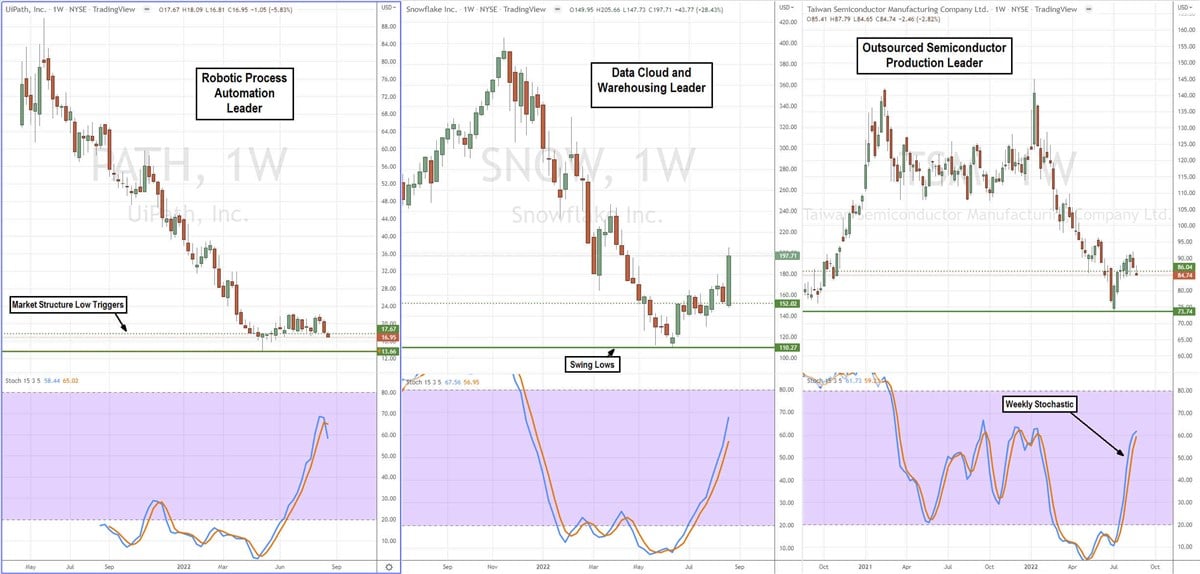Deflation enablers are companies that help organizations cut costs, grow efficiencies, and optimize performance during uncertain macroeconomic environments like recessions and bear markets. As consumers pull back on spending in attempts to stretch their wallets, companies must adjust and adapt for shrinking sales and resources. People generally produce less, make less, and consume less in a recession, which is defined as two or more consecutive quarters of declining GDP. Companies that enable automation, declining costs, and process efficiency while maintaining a strong moat are the most attractive inflation enablers. According to Morgan Stanley (NYSE: MS) analyst Joshua Pokrzywinski, “A Deflation Enabler is a company producing tangible cost savings for customers where costs are rising from inflation or scarcity.” Here are some deflation enablers to pay attention to during a recession.
 MarketBeat.com – MarketBeat
MarketBeat.com – MarketBeat 
The Company provides an end-to-end automation platform enabling robotic process automation (RPA) solutions. RPA is a megatrend in the world of business and UI Path is the leader. It’s software enables users to identify and analyze processes and provides the easy-to-use tools to automate them. Automation creates efficiencies saving time and labor for companies by automating manual processes and frankly replacing the need for people to perform them. For example, RPA Is used by health insurers to process medical claims around the clock while reassigning claims adjusters to handle more complex cases. The Company has over 10,000 global clients and an annualize run rate (ARR) of a $1 billion and a dollar base net retention rate of 138%. UI Path services banking, financial services, healthcare and government entities. The Company is still losing money but at a slower rate on its path to profitability. Revenues grew 31.6% year-over-year (YoY) to $245.07 million beating $225.37 million consensus analyst estimates.
This Company enables cloud-based data warehousing through its Data Cloud solution. This enables clients to consolidate all their data into a shareable and accessible single source of truth. Artificial intelligence (AI) powered tool help customers analyze their data to derive business intelligence and insights to create data-driven applications and solutions that can even be monetized through the Snowflake Marketplace. They are still losing money, but gangbuster revenues grew 87% YoY to $487.2 million in Q2 2022, beating $467.31 analyst estimates. They have 6,808 clients of which 246 are $1 million plus customers. They recent raised their product revenue guidance full year revenue guidance and expect 74.5% top line growth for sales to come in between $500 million to $505 million with a 75% non-GAAP gross profit margin compared in Q3 2022.
Taiwan Semiconductor (NYSE: TSM)
These guys produce over 70% of the world’s semiconductors. Outsourcing chip production enables semiconductor companies to be asset light preserving precious capital, especially during times of economic uncertainty. Chip producing fabrication plants cost billions and takes years to construct with ongoing operating, maintenance and upgrade costs. This has caused semiconductor giant Intel (NASDAQ: INTC), who produce their own chips in their own fab plants, to fall behind rivals in areas like data center, artificial intelligence, mobile, automobile, and gaming. Recession fears have caused Intel stock to plunge to five-year lows, while its rivals still trade higher. The majority of Taiwan Semi revenues are generated in North America at over 60%. It derives 30% of its sales from 7 nanometer chips as 5-nanometer chips gain ground making up for 21% of chip sales. It’s revenues are derived mostly from high powered computing (HPC) at 43% and smartphones at 38%. Taiwan Semi is the world’s dominant chip maker enabling its clients to private label their chips. Their list of powerhouse brand name clients include Apple (NASDAQ: AAPL). Applied Micro Devices (NYSE: AMD), Broadcom (NASDAQ: AVGO), Marvel Technology (NASDAQ: MRVL), and Nvidia (NASDAQ: NVDA) in addition to over 500 other chip companies. Despite the global supply chain disruption and chip shortage, Taiwan Semi is thriving on robust demand for its chips. The Company grew revenues by 43.5% YoY to $18.16 billion in Q2 2022 with EPS at $9.14. Gross margin was 59.1%, operating margin 49.1%, and net profit margin was 44.4%. The Company raised its guidance for Q3 2022 for revenues to come in between $19.8 billion to $20 billion versus $18.5 billion consensus analyst estimates with gross margins expected between $57.5% and 59.5%. Taiwan Semi expects excess inventory to rebalance through the first half of 2023. The biggest risk lies in the geopolitical tensions with China claiming Taiwan as its own.






